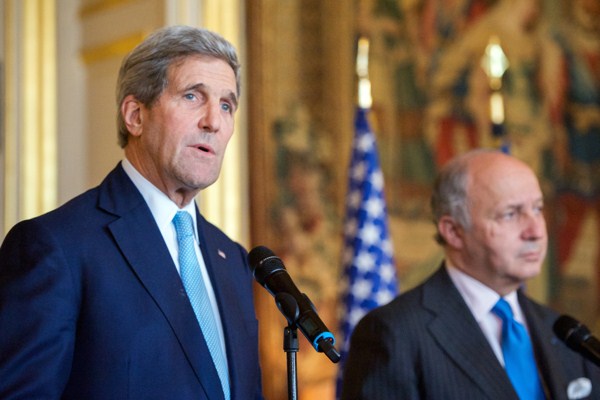U.S. Secretary of State John Kerry’s last-minute whirlwind tour of European capitals in the run-up to the Nov. 24 deadline for reaching a nuclear deal with Iran calls to mind the old aphorism about diplomacy: The hardest part isn’t getting the other side to agree to the deal, it’s convincing your own side to agree to it.
In this case, Kerry’s stopover today in Paris for talks with French Foreign Minister Laurent Fabius is illustrative. In November 2013, Fabius played a high-profile—and high-stakes—role in toughening up the initial interim framework accord that was extended once already and is now set to expire Monday.
That episode highlighted the divisions within the so-called P5+1 group, comprised of the five permanent U.N. Security Council members—the United States, the United Kingdom, France, Russia and China—plus Germany, that is negotiating with Iran. France, in particular, has historically taken a tough position in the talks, one that was close to the hard line of former U.S. President George W. Bush on Iran but has sometimes been out of sync with President Barack Obama’s hoped-for engagement with Tehran. Last November, Fabius held out for stricter terms regarding Iran’s planned plutonium-based reactor that is still under construction at Arak. It has been reported that France is again seeking tougher terms for the final agreement, but so far the details of those internal deliberations remain obscure.

